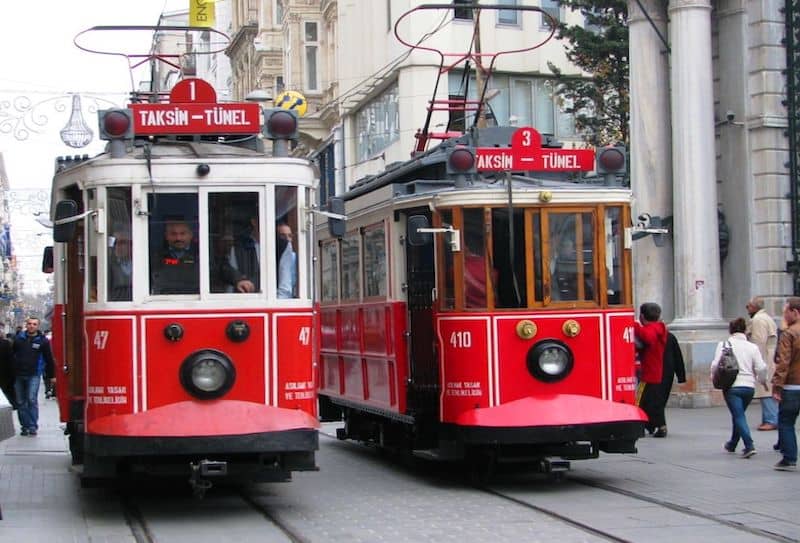Best Time to Visit Istanbul in Turkey
One of the most gorgeous cities of the world, Istanbul in Turkey is the ideal destination for all travellers. Whether you’re there for a relaxing vacation or passing by on an official business trip, Istanbul really pulls out all the stops. From extremely friendly people to an enriching culture, there’s really nothing that Istanbul lacks. So, if you’re up for a trip to Istanbul, and want to go soon, here’s the best time to visit Istanbul:
Best Time to Visit Istanbul: Seasons
Now, Istanbul goes through four seasons, Spring, Summer, Autumn/Fall and Winter, so if you’re looking for something specific, you can choose what season suits you best.
Spring Season
The Spring Season in Istanbul lasts March to May and is the most ideal time to visit Istanbul. The weather is pleasantly warm during the day but drops a few digits around evening, so it’s practically a very cosy season to be in. Since bahar (spring) is when flowers bloom, taking walks in local parks is a mystical experience altogether. The Spring season brings crowds in Yıldiz Park, where more than 800,000 tulips bloom. The islands near the Bosphorus also get vividly beautiful, so in all its essence, Spring is one of the most beautiful times to be in Istanbul.
Summer Season
Summer begins in June and goes on till August and is the ideal time to visit for those hailing from extremely cold corners of the world or anyone who’s looking to catch the sun. Summer in Istanbul tends to bring a lot of sunshine and bright, clear skies, so if you’re fond of tanning, you might want to steer clear. July is the hottest month of the year, so it’s best if you head in August or early June. However, summer does have its perks; there are barely any crowds and prices don’t surge much. Taking a cruise along the Bosphorus becomes one of the best holiday activities during summer, so if you don’t mind the heat, hop along!
Fall Season
Fall occurs between the months of September to November, with the former month still collecting heat and the latter getting slightly colder. If you’d like to avoid the sun and hit straight for the cooler months, plan your vacation in the late weeks of October when the sun starts to retreat behind clouds and the wind gets pleasant. Taking walks along the Bosphorus banks, exploring the graffiti on the walls of Karaköy neighbourhood and venturing on a gastronomic adventure are popular activities which fit well with the season. Don’t forget to try fish, which becomes a common delicacy in fall.
Winter Season
Winter in Istanbul goes on in the months December, January and February and boy does it get cold! The wind can get pleasantly cold or harsh with no in between, and the fall of kar (snow) really holds off those double digits. If you’re a sucker for white streets and romantic weather, winter is your ideal month to visit Istanbul. Holding a warm kahva or a cup of Turkish coffee while strolling the snowy streets is a feat only winter can pull off!!
A Monthly Run Down of Weather
To make sure your trip to Istanbul goes to plan, you’ll need to know about the average monthly weather and temperature, so here’s run-down:
January
The highest temperature is around 8-9℃ and the lowest is around 1-2℃. Chances of rain are pretty high; average precipitation is around 80-90mm.
February
The highest temperature is around 9-10℃ and the lowest is around 1-2℃. Chances of rain are pretty high; average precipitation is around 60-75mm.
March
The highest temperature is around 10-12℃ and the lowest is around 2-4℃. Chances of rain are high; average precipitation is around 50-60mm.
April
The highest temperature is around 15-17℃ and the lowest is around 5-7℃. Chances of rain are low; average precipitation is around 40mm.
May
The highest temperature is around 20-24℃ and the lowest is around 10-12℃. Chances of rain are pretty low; average precipitation is around 30mm.
June
The highest temperature is around 25-28℃ and the lowest is around 15℃. Chances of rain are pretty low; average precipitation is only around 20mm.
July
The highest temperature is around 28-35℃ and the lowest is around 18℃. Chances of rain are almost minimal; average precipitation is only 23mm.
August
The highest temperature is around 28-31℃ and the lowest is around 18-19℃. Chances of rain are minimum; average precipitation is barely 20mm
September
The highest temperature is around 20-25℃ and the lowest is around 15℃. Chances of rain are relatively low; average precipitation is around 44mm
October
The highest temperature is around 20-21℃ and the lowest is around 13℃. Chances of rain are high; average precipitation is around 70mm
November
The highest temperature is around 15℃ and the lowest is around 7-8℃. Chances of rain are very high; average precipitation is around 85mm
December
The highest temperature is around 10-11℃ and the lowest is around 4-5℃. Chances of rain are the highest; average precipitation is around 107mm
Best Time to Visit Istanbul: Tourism
Now that you’re upto speed on the weather, let’s talk about when it’s smart to visit Istanbul. Here is a breakdown of the time tourism is high and low:
High Time: March to July
Yes, the summer tends to scatter off most tourists but that’s also why Istanbul is gaining popularity during the hot months. People flock from all over to get in on the “quiet months,” which are not so quiet anymore. In truth, visiting Turkey March to July is only smart if you’re lucky. However, mid-March to mid-April is a time when tourism is high, so it’s best if you avoid that.
Low Time: November to February
Of course, winter can be harsh which is why people tend to avoid winter in Istanbul. That being said, winter is the perfect time for anyone who live in moderately hot cities and want to cool down. In addition, winter in Istanbul tends to lower the crowds of people heading there, so if you’re an introvert or you have social anxiety or even are claustrophobic, heading to Istanbul in winter is a great decision.
Best Time to Visit Istanbul: Budget
While you may think the surge in prices matches the surge in crowds, you’re only slightly right. Istanbul is a pretty unpredictable place, and it can witness surges unexpectedly, so if you have a limited budget, it’s best to know when not to go.
High Hotel Pricing
Surges in hotel pricing is recently becoming common during the summer, especially July and August because that’s when tourists from cold areas fly to hit the beaches. The highest price of hotel is encountered in September, because that’s when the sun is neither too hot nor is the weather too cold. Hotels tend to spike up the price during these three months, so avoid them unless you have a really flexible budget.
Low Hotel Pricing
Winters and early spring are when the hotels relax on their prices, so if you’re coming with a limited budget, this is your window. However, the months of April and May tend to carry unpredictable or sudden hike in tourism, so if you’re on a really tight budget that cannot be flexible, plan for the earlier months. Going on budget alone, the best month(s) to visit Istanbul is December and February.

